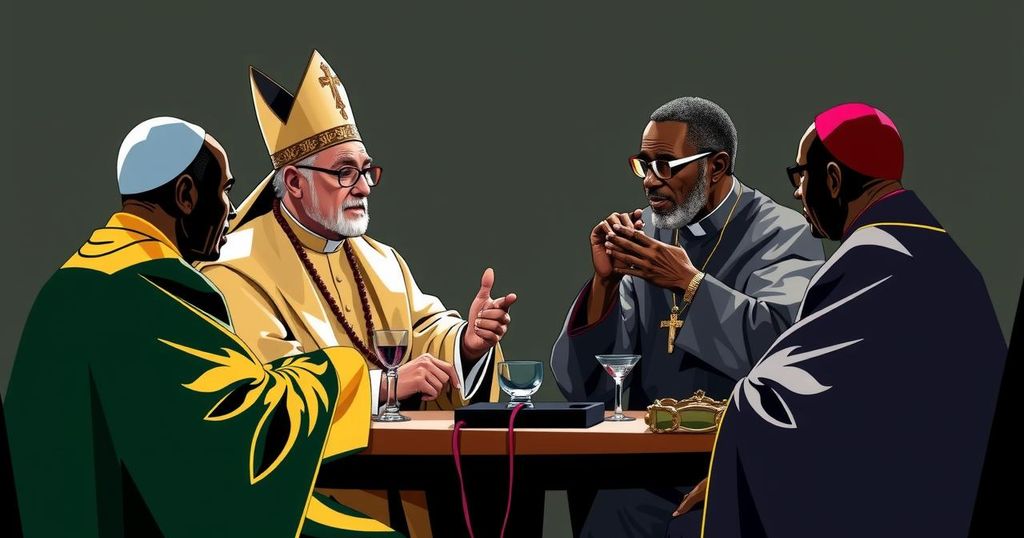Politics
AFRICA, CATHOLIC CHURCH, DEMOCRACY, DISCRIMINATION, EVANGELIZATION, HUMAN RIGHTS, MATOLA, MOZAMBIQUE, PEACEBUILDING, PIRES, PRETORIA, SACBC, SACC, SHEILA PIRES, SIPUKA, SITHEMBELE ANTON SIPUKA, SOUTH AFRICA, SOUTH AFRICAN COUNCIL OF CHURCHES, SOUTHERN AFRICAN CATHOLIC
Fatima Khan
0 Comments
Southern African Bishops Advocate for Peaceful Dialogue in Mozambique
The SACBC’s solidarity visit to Mozambique focused on urging dialogue and peaceful dissent amid electoral concerns. Bishops addressed improper election conduct and police violence while promoting non-violence. A National Day of Prayer for Peace is scheduled for November 24, aiming to enhance unity and support for peaceful dialogues.
The recent solidarity visit by the Southern African Catholic Bishops Conference (SACBC) to Mozambique emphasized the urgent need for dialogue following concerns about the elections. Bishop Sithembele Anton Sipuka highlighted that Mozambican Bishops voiced their apprehensions regarding reports of electoral misconduct and police brutality, urging citizens to pursue peaceful means of expressing dissent. Meetings with key stakeholders reinforced the call for collaborative discussions as a pathway to stability, and a National Day of Prayer for Peace was proclaimed for November 24.
The political landscape in Mozambique has been marked by tensions around electoral processes, which have led to civil unrest. Recent elections raised alarms regarding their fairness, prompting the intervention of religious leaders who advocate for non-violent solutions. The Southern African Catholic Bishops’ solidarity visit aimed at fostering dialogue and cooperation among different factions in Mozambican society, acknowledging the role of churches in promoting peace amidst societal unrest.
In summary, the Southern African Catholic Bishops’ visit underscored the necessity for dialogue to resolve political tensions in Mozambique. The bishops’ message promoting peaceful dissent and the establishment of a National Day of Prayer for Peace reflects an urgent call for unity and collective action among various stakeholders for the betterment of the country. Ongoing support from the SACBC and SACC is critical in the efforts to maintain dialogue and peace in Mozambique.
Original Source: www.vaticannews.va




Post Comment